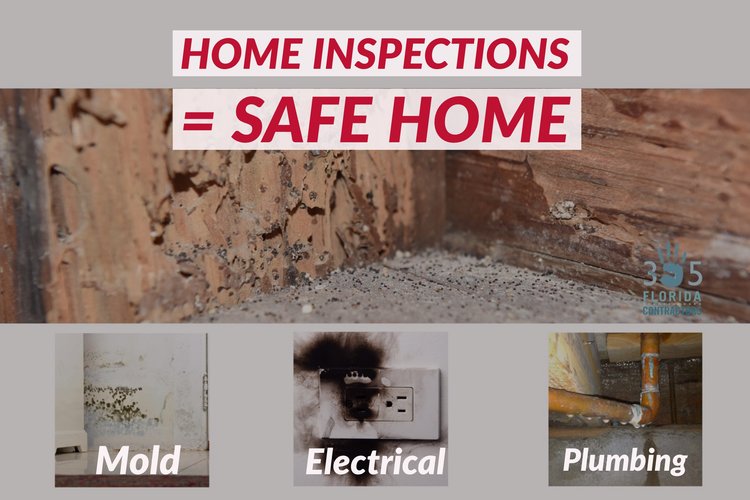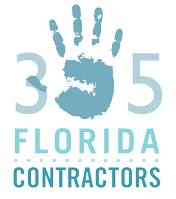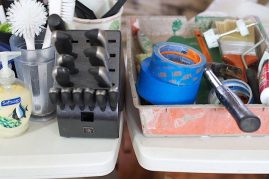While a home inspection will usually cost a prospective buyer several hundred dollars, it’s an investment that you should definitely make. Here’s why.
Once your realtor has helped you locate a home you’re interested in purchasing and after you’ve made an offer which the owner has accepted, you’ll sign a contract that should include a contingency clause.
This clause simply provides that if inspection reveals a serious problem within a specified period of time, you can cancel or void your purchase contract without having to pay any penalty. However, inspections will also point out the areas that might not be quite that serious, but still need to be addressed to make your new home safe for you and your family.
While the idea of a home inspection might seem to associated with older homes, you should also plan to have a thorough inspection of newly built homes before purchase. Even recently completed construction can reveal design and construction defects, which might result in serious damage and pose health risks for years.
Home Inspections for New Home Purchases

The quality of your inspection will depend in large part on the inspector you select.
You’ll undoubtedly find a wide range of levels of experience, skill, and attention to detail in your area’s inspectors so it pays to get recommendations from people who have recently purchased similar types of property in your area. If you can find an inspector who has reviewed homes in your specific neighborhood, so much the better!
Once your inspector concludes the inspection, they’ll prepare a written report outlining the results.
A helpful inspection report should specify whether the issue noted is a safety issue or a major defect, as opposed to a minor one. It should also distinguish between items that need to be replaced versus items that can be safely repaired instead. Ideally, it will also note any items that may be acceptable for the immediate future, but which should be monitored over time.
Plumbing, Leaks, and Mold
A primary area of concern for new home buyers is the potential for home water damage and resulting mold. You might be able to see external water damage fairly easily — water spots on the ceiling, for example, or pooling water near exterior walls or the foundation.
But moisture can also cause damage in places that aren’t so easy to see, such as inside your walls. And if that’s not spotted and properly cleaned up in short order, the result will be dangerous mold. Mold resistant drywall can help reduce this risk but an inspector will be able to spot problems, using tools like infrared cameras when necessary.
Another spot that can signal current or future damage is the gutter and spout system for your home. If these aren’t channeling water freely and smoothly away from your roof, walls, and foundation, the result will be a damaged foundation or leaky roof. Loose or missing roof shingles can mean that water intrusion has occurred underneath.
Finally, the home’s plumbing system should be checked thoroughly for any sign of leaks or water pressure problems. If your home is “of a certain age” and so are the pipes, your inspector might recommend a more detailed review to estimate if replacement needs to take place and how soon. Specific points of investigation include visible lines, faucets, showers/tubs and their drains, and toilets.
Electrical Wiring, Appliances, and Other Fire Risks
Another potential health hazard in a house is the risk of fire from improper wiring, malfunctioning appliances or old panels. Depending on the age of the home and whether the wiring has been upgraded since construction, that could add a significant cost to your overall investment if you move forward with the purchase — but you definitely don’t want to ignore problems in this area.
Other specific area of concerns include checking to make sure the laundry room is well ventilated, since a blocked exhaust on your dryer can present a significant risk of fire.
Your inspector will also inspect an attached garage, if there is one, as well as testing the house’s smoke detectors to make sure they’re functional.
HVAC and Asbestos
Your home inspector should also take a close look at your heating, ventilation, and air conditioning (HVAC) system. The report should note how old the furnace and other HVAC elements are, whether they function properly, and to what extent any repairs or maintenance are needed or warranted.
Your inspector should also take a look at the ductwork and insulation in your home. Looking at these elements can help reveal whether there’s any asbestos that needs to be removed or whether there are any leaks that must be addressed.
What to Do After Your Inspection Report is Delivered
While an inspection might cost you more money, it’s money very well spent. If your report shows serious problems, you can walk away (assuming you have a contingency clause in your contract).
Alternatively, you can get quotes from qualified home contractors to fix the problems.
Whichever option you choose, a good home inspector is a smart investment to make in your future home’s safety!





